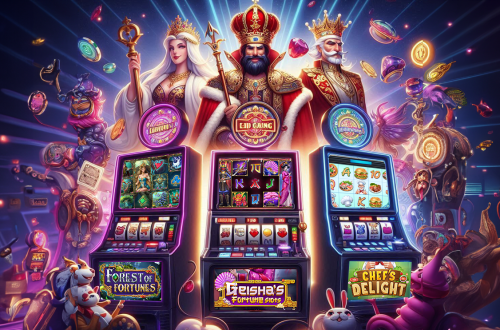Gaming platforms have undergone a remarkable evolution over the past few decades, transforming from simple arcade machines to sophisticated online ecosystems. Today, the gaming industry is not just about entertainment; it’s a thriving economy that influences culture and technology in profound ways. Let’s delve into the evolution of Taxibet88 gaming platforms, from their humble beginnings to the cutting-edge innovations shaping the future.
The Early Days: Arcades and Home Consoles
The story of gaming platforms begins in the 1970s with arcade machines. These coin-operated cabinets introduced the world to classics like Pac-Man, Space Invaders, and Donkey Kong, creating a social hub for gamers. Simultaneously, home consoles like the Atari 2600 and the Nintendo Entertainment System (NES) brought gaming into people’s living rooms, laying the groundwork for a booming industry.
The Rise of PC Gaming and Online Multiplayer
The 1990s saw the rise of PC gaming, where titles like Doom and Quake showcased the potential of home computers. This era also saw the emergence of online multiplayer gaming, with services like AOL and early internet connections enabling players to connect over long distances. The shift from local to global multiplayer experiences set the stage for the next wave of gaming innovation.
The Console Wars and the Birth of Digital Distribution
The late 1990s and early 2000s were defined by the console wars between Sony, Microsoft, and Nintendo. Consoles like the PlayStation 2, Xbox, and GameCube not only pushed the limits of graphical fidelity and gameplay but also introduced digital distribution platforms. Services like Xbox Live and PlayStation Network allowed players to download games directly to their consoles, reducing the reliance on physical discs.
Mobile Gaming and the App Store Revolution
The introduction of smartphones in the late 2000s revolutionized gaming once again. Apple’s App Store and Google Play opened up new avenues for developers, making games more accessible than ever. Titles like Angry Birds and Candy Crush Saga became global phenomena, attracting millions of players worldwide and demonstrating the potential of mobile gaming platforms.
The Advent of Cloud Gaming and Streaming
In recent years, cloud gaming has emerged as the next frontier in gaming platforms. Services like Google Stadia, NVIDIA GeForce Now, and Xbox Cloud Gaming (formerly xCloud) allow players to stream games directly to their devices, eliminating the need for powerful hardware. This technology promises to make high-quality gaming accessible to anyone with a reliable internet connection, blurring the lines between consoles, PCs, and mobile devices.
The Future: Integration, Virtual Reality, and Beyond
Looking ahead, gaming platforms are poised to become even more integrated and immersive. Virtual reality (VR) and augmented reality (AR) technologies promise to revolutionize how we experience games, while advancements in AI and machine learning will create more dynamic and responsive gameplay experiences. Gaming platforms will continue to evolve, driven by technological innovation and the desire to create increasingly immersive and engaging gaming experiences.
From the arcades of the 1970s to the cloud gaming platforms of today, gaming has come a long way. What started as a niche hobby has grown into a global industry that transcends boundaries and cultures. As technology continues to advance, gaming platforms will evolve to meet the demands of players, providing new ways to play, connect, and experience virtual worlds. The future of gaming platforms is bright, promising a world where anyone can become a hero, explorer, or strategist with just the click of a button.





